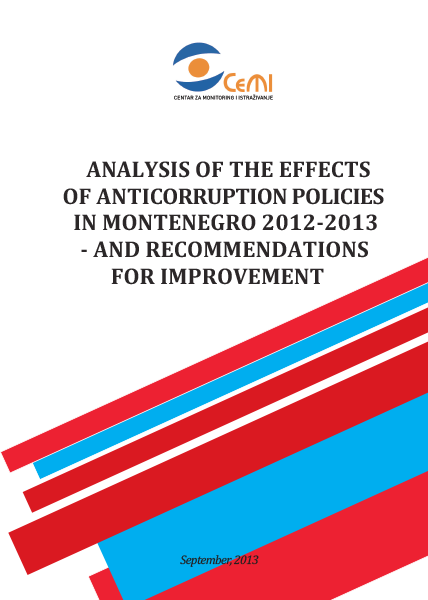This study is divided in three parts: political corruption, economic corruption and corruption prevention and integrity. Under the term political corruption, for purposes of this study, we imply abuse of political function for personal gain. In this area we concentrated on policies regulating areas of financing of political parties, conflict of interests and control mechanisms used by the Parliament of Montenegro for prevention of corruption. Second part is dedicated to economic corruption, i.e. corruption in the process of creation and execution of state budget. In this part we processed areas of public finances, state property, public procurement and securities market. In the third part we evaluated preventive mechanisms and mechanisms of integrity building, such as free access to the information, protection of the whistleblowers, codes of ethic and integrity plans. In each of these parts we analyzed characteristics of institutional and legal framework, i.e. institutional and legal changes that took place in the last year, results of these changes and deficiencies spotted in their implementation. In such manner we qualitatively evaluated degree of fulfillment of recommendations of the Action Plan for the Fight against Corruption and Organized Crime and identified key obstacles for successful prevention and reduction of corruption. Within each area we gave a set of recommendations, which encompass concrete interventions on legal or institutional framework or more consistent implementation of existing mechanisms.
Analysis of the effects of anticorruption policies in Montenegro 2012/2013 - Recommendations for improvement
06. Jan. 2017. in publications
